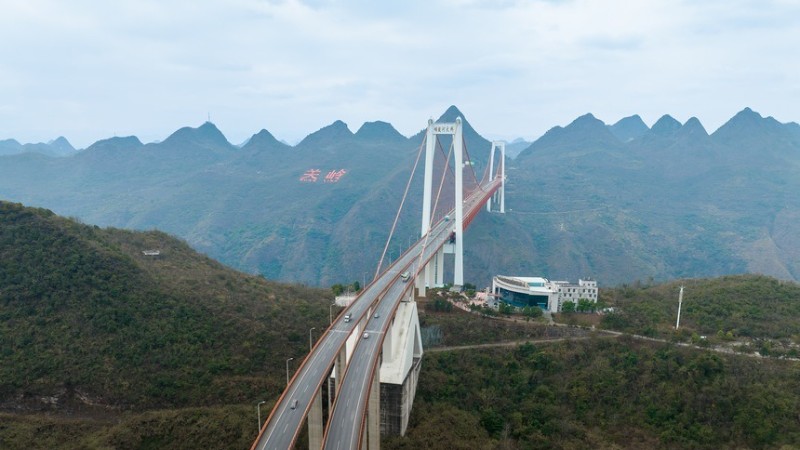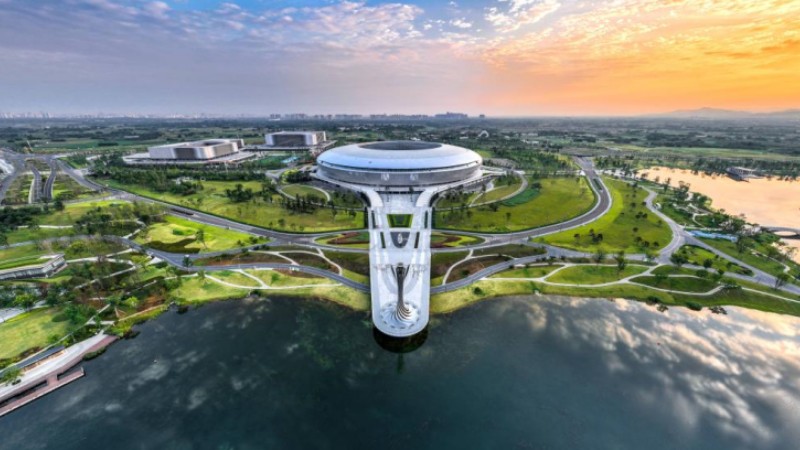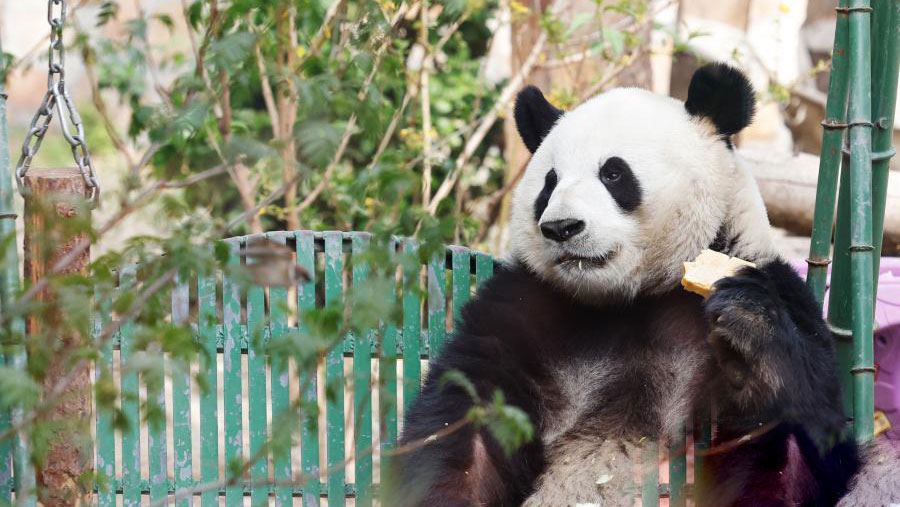Marathon economy regains growth momentum in China
As cities across China have resumed marathon events one after another, the country's marathon-related industries are recovering at a faster pace.
The past weekend witnessed nearly 30 marathons in various parts of the country. On April 16 alone, marathons were held in multiple Chinese cities, including the country's capital city Beijing, east China's Shanghai, and Wuhan city, capital of central China's Hubei Province.

Runners compete during the 2023 Xiamen Marathon in Xiamen, southeast China's Fujian Province, April 2, 2023. (Photo/Xinhua)
A total of 133 road running races scheduled for the first half of the year have been registered in the Chinese Athletics Association (CAA), according to a report on such races in China in 2023 the CAA released.
Data from the World Athletics shows the number of global marathons for 2023 accredited by the organization has reached 238, of which 67 have been slated to take place in China, ranking the country first in the world in terms of the number of marathons.
"After today's half marathon in Beijing, I will have taken part in three marathon events this year. I also plan to go to Baoding in Hebei Province to take part in another marathon on April 30, and I've signed up for two more marathons in May and June," said a marathon enthusiast surnamed Wei. Wei has taken part in marathons since 2015, and has run a total of 5,000 kilometers in the past eight years.
The rapid and continuous increase in the number of marathons across the country has not only stimulated sports performance activities and the sports consumption market, but brought new economic growth points to cities while spurring the development of other industries and fields, according to Guo Bin, deputy secretary general of the national sports industry research base of Peking University.
Marathoners are already used to traveling to competitions. Aside from the entry fee, they also spend for accommodations and sightseeing, thus indirectly contributing to the economic development of the cities where events are held.
Bao Bo, director of Wuhan Marathon in Wuhan, said about 60 percent of marathon runners in the Wuhan Marathon were not local people.
A report revealed that each marathon runner in China spent an average of more than 11,000 yuan ($1,600) on competition-related supplies such as training equipment, clothing and accessories, and nutrients in 2020; half of marathon runners in the country have traveled to competitions; 71 percent of the out-of-town runners try local delicacies and snacks; and 64 percent of them go sightseeing in the host cities.
"I take part in more than 10 marathons a year, and they cost me from 30,000 yuan to 50,000 yuan per year, no matter half marathons or full marathons," said Wei, who disclosed that his expenses would be higher if he takes part in overseas marathons.
More and more local governments attach great importance to marathons because of their positive role in driving the economic development of the cities which host them.
An investigation report on the development of the sports industry of Xiamen, southeast China's Fujian Province indicated that since Xiamen launched the Xiamen Marathon, the event has generated economic benefits worth 4.49 billion yuan for the city.
Southwest China's Chongqing Municipality has also benefited from marathons in recent years. In 2023, the Chongqing International Marathon attracted 30,000 participants from 347 cities around the world, with 81 percent of the runners coming from other cities.
During the competition, the hosts launched a consumption festival to boost the development of the local catering industry and other relevant industries.
"The rebound of marathons has activated the upstream and downstream links of the industrial chain, directly promoting the development of industries related to such products as sports equipment, food and beverages, wearable devices, and technical services," said Zhang Qing, founder of a sports consulting company.
He said the recovery of marathons has brought new business opportunities to people who engage in the production and sale of medals, medal holders and medal display racks.
Marathons are also important sports marketing arenas to various brands. Sports brand giants including Li-Ning, Anta, and Xtep have all sponsored marathons and seen their brand awareness further increased as runners who won wore the running shoes of their brands this year.
Other businesses, including food and beverage companies, have also been attracted to marathons. The 2023 Wuhan Marathon, for instance, enjoyed sponsorships from more than 20 companies.
Financial institutions have also actively supported marathons. According to reliable sources, China Asset Management sponsored the Beijing Half Marathon, Shanghai Pudong Development Bank provided financial support for the Shanghai Half Marathon, and the 2023 Wuhan Marathon was sponsored by the Bank of China.
Photos
Copyright © 2023 People's Daily Online. All Rights Reserved.









